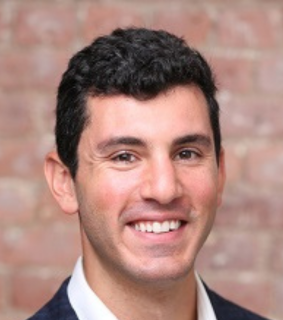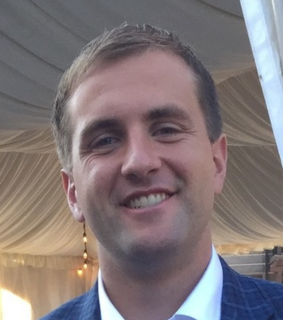About Us
EntityRisk was founded by three leading PhD health economists, Dana Goldman, Darius Lakdawalla, and Neal Masia, combining decades of academic and industry experience and a powerful software solution to help companies better define, quantify, and communicate the value of new medicines.
Our software-driven solutions address the full spectrum of economic considerations, ranging from drug pricing, value, and access to real-world effectiveness and integrated evidence planning.
Meet our team of world-class problem solvers
Founders
Dana Goldman, PhD
Dana Goldman is the Dean of the USC Sol Price School of Public Policy, where he holds the C. Erwin and Ione L. Piper Chair and is a distinguished professor of public policy, pharmacy, and economics. Dr. Goldman has served as director (now co-director) of the USC Schaeffer Center for Health Policy and Economics since its inception, establishing it as one of the nation’s premier health policy research centers. He is an elected member of the National Academy of Medicine and the National Academy of Social Insurance – two of his field’s highest honors. He is the author of more than 300 articles, and his research has been published in leading medical, economic, health policy, and statistics journals and other media. He has raised over $170 million in support for health policy research—including more than $50 million from the NlH. He has served as a health policy advisor to the Congressional Budget Office, Covered California, NIH, the Fred Hutchinson Cancer Institute, and several life sciences companies. He serves as a scientific advisor to GRAIL and Biogen and was a co-founder of Precision Health Economics. Dr. Goldman is a member of the editorial boards of Health Affairs and the American Journal of Managed Care and was founding editor of the Forum for Health Economics and Policy. His work has been featured in the New York Times, Wall Street Journal, Washington Post, The Economist, NBC Nightly News and other media. He is a former director of ISPOR and ASHEcon. Dr. Goldman received his B.A. summa cum laude from Cornell University and a Ph.D. in Economics from Stanford University.
Darius Lakdawalla, PhD
Darius Lakdawalla is a widely published, award-winning researcher and a leading authority on health economics and health policy. He holds the Quintiles Chair in Pharmaceutical Development and Regulatory Innovation at the University of Southern California, where he sits on the faculties of the School of Pharmacy, Sol Price School of Public Policy, and the Leonard D. Schaeffer Center for Health Policy and Economics, one of the nation’s premier health policy research centers. His research has focused on the economics of risks to health, the value and determinants of medical innovation, the economics of health insurance markets, and the industrial organization of healthcare markets. His work has appeared in leading peer-reviewed journals of economics, health policy, and medicine, including the American Economic Review, Quarterly Journal of Economics, Health Affairs, the Journal of Health Economics, and the New England Journal of Medicine. In addition, his work has been featured by prominent popular press outlets, such as the Wall Street Journal, National Public Radio, Forbes, and the New York Times. Darius received his Ph.D. in Economics from the University of Chicago and his B.A. in Mathematics and Philosophy from Amherst College.
Neal Masia, PhD
Neal Masia is co-founder and CEO of EntityRisk, Inc., a company using cutting-edge health economics to make treatment outcomes more predictable and more investable. He is also the founder of Health Capital Group, LLC, which advises healthcare companies ranging from startups to public corporations and major investment and consulting firms including Guggenheim Partners, Blackstone and EY. Prior to his current roles, Neal spent 18 years at Pfizer Inc. As a member of Pfizer’s Senior Leadership Council, Neal advised the Executive Leadership Team and Board of Directors on how global economic forces shape the healthcare industry and he worked closely with the CFO on all strategic business development activities. Over the course of his Pfizer career, Neal built or redesigned major commercial and finance functions including Capital Strategy, International Treasury, Global Pricing, Real World Data and Analytics, Patient-Centered Outcomes, and Market Access/HTA Methods and Capabilities. Prior to Pfizer, Neal was a consultant at the Advisory Board Company, a special studies analyst with the U.S. Congressional Budget Office, a director of planning and marketing at a venture-backed insurance technology startup, and a senior policy advisor to Senator Bill Bradley. He has been an Adjunct Professor of Management and Economics at Columbia University since 2013, and serves on several boards including CaliberMRI and Jewish Family and Children’s Services. Neal earned a B.A. (High Honors) in Mathematical Economics from Colgate University and a Ph.D. in Economics (specializing in Public Finance and Game Theory) from the University of Rochester.
Board Members
Frank D’Amelio
Frank D’Amelio is a senior executive with over 20 years experience as a public company CFO. In addition to his CFO experience, Frank has also been a CAO & COO.
Frank is the former Executive Vice President & Chief Financial Officer at Pfizer Inc, responsible for all corporate finance functions including audit, treasury, tax, investor relations, insurance, operations planning and analysis, corporate controllership, and business finance and analytics. From 2019 through 2021, Frank was the Chief Financial Officer & Executive Vice President, Global Supply responsible for Pfizer’s worldwide global supply chain. This included the manufacture and distribution of the COVID vaccine. More than 3B doses of the COVID vaccine were made in the first year of production.
At Pfizer, Frank has led the acquisition and integration of Wyeth Pharmaceuticals, King Pharmaceuticals, Hospira Inc., Anacor Pharmaceuticals, Inc., Medivation, Inc. and Array, as well as the spin-off of Pfizer’s animal health business, Zoetis, the sale of its nutrition business to Nestle and its Capsugel business to KKR, the formation of the Consumer JV with GSK and the formation of Viatris with Mylan.
During Frank’s tenure as the Pfizer CFO, Pfizer’s market cap has increased by $165B. Including the Zoetis spin-off, market cap increased by approximately $250B. Further, Frank has completed business development transactions totaling approximately $200B.
Before joining Pfizer as CFO in September 2007, Frank was Senior Executive Vice President of Integration and Chief Administrative Officer of Alcatel-Lucent, responsible for the integration of the Alcatel-Lucent merger as well as procurement, real estate, IT and supply chain.
Prior to the merger of Alcatel and Lucent Technologies in 2006, Frank was the Chief Operating Officer of Lucent Technologies. In 2001, he was appointed Executive Vice President and Chief Financial Officer of Lucent, where he helped lead the company through one of the most challenging periods in the telecom industry’s history and returned the company to profitability.
When Lucent was spun off from AT&T in 1996, Frank helped create the new company financially as the CFO of Lucent’s Network Systems Business and was a critical member of the team that met with investors around the world during Lucent’s initial public offering. In 1999, he was appointed the Group President of Lucent’s Switching Solutions Business Unit, where he led Lucent’s multibillion-dollar, global Switching, Access and Application Software businesses.
Born and raised in New Jersey, Frank earned his MBA in Finance from St. John’s University and his bachelors degree in Accounting from St. Peter’s University. He started his career in 1979 at Bell Labs, holding a variety of financial, accounting and general management positions, and moved within AT&T, holding a series of positions with increasing responsibility.
In 2005, 2006, 2011, 2012, 2013, 2014, 2015, 2016, 2017, 2018, 2019, 2020, and 2021 Frank was ranked among America’s top CFOs by Institutional Investor magazine.
He currently serves on the Boards of Directors of Humana, Inc., and is chair of the Audit Committee; Zoetis, Inc.; Hewlett Packard Enterprises; and is the Resident CFO at Deloitte University.
Jeff Kindler
Jeff Kindler serves as Chief Executive Officer of Centrexion Therapeutics, a company focused on developing safe and effective, non-addictive treatments for chronic pain.
Kindler is also a Senior Advisor to Blackstone, one of the world’s leading investment firms, and an Operating Partner at Artis Ventures, a leading venture capital firm. He also serves on the boards of Perrigo, an international manufacturer of private label over-the-counter pharmaceuticals; Precigen, a biotechnology company and Terns Pharmaceuticals, a clinical stage biopharmaceutical company. He is also Chair of the GLG Institute, a membership-based learning community for leading executives, and serves as a director or advisor to a number of private health care firms.
Kindler was formerly the Chairman and Chief Executive Officer of Pfizer, the world’s largest research-based biopharmaceutical company, which he joined in January 2002. As CEO, Kindler led Pfizer’s $68 billion merger and acquisition of Wyeth, diversified Pfizer’s product portfolio, improved its R&D pipeline, and reshaped the company’s commercial, innovation, and leadership models to drive growth and cultural change. He joined Pfizer as Executive Vice President and General Counsel and, prior to his appointment as CEO in July 2006, he served as a Vice Chairman of the company, responsible for Pfizer’s corporate affairs including worldwide legal, regulatory and patent matters as well as a range of public affairs and communications functions, and serving as a member of the four-person executive committee overseeing global business operations.
While at Pfizer, Kindler worked with former President Bill Clinton to help bring medicines to impoverished patients in the developing world through public-private pharmaceutical partnerships. He also represented the pharmaceutical industry in U.S. government healthcare reform efforts, helping to increase access to affordable medicines while preserving an environment in which pharmaceutical firms can discover and develop innovative treatments.
In 1996, Kindler joined McDonald’s Corporation as Executive Vice President and General Counsel, responsible for both legal and corporate affairs, and then moved into line management as President of Partner Brands, which included overseeing franchise, operations and marketing efforts for restaurant brands such as Boston Market, Chipotle Mexican Grill, Donato’s Pizza, and Pret a Manger. Before joining McDonald’s Corporation, Kindler was Vice President of Litigation and Legal Policy of the General Electric Company.
Prior to GE, Kindler practiced civil and criminal litigation as a partner at the Washington D.C. firm of Williams & Connolly. He began his career as an attorney at the Federal Communications Commission and served as a law clerk to Judge David L. Bazelon of the U.S. Court of Appeals of the D.C. Circuit and later as law clerk to U.S. Supreme Court Justice William J. Brennan, Jr.
Kindler earned his BA in 1977 from Tufts University summa cum laude and his JD in 1980 from Harvard magna cum laude, where he was an editor of the Harvard Law Review.
Leverage software built by a team with world- class scientific, engineering and industry credentials.
EntityRisk Team
Wissam Afyouni
Wissam Afyouni is a Data Analyst at EntityRisk with experience leveraging advanced analytics, machine learning, and statistical modeling to support data-driven decision-making and optimize risk management strategies. Previously, he contributed to healthcare-focused analytics projects as an Associate Data Science Analyst at Mayo Clinic and developed optimization algorithms and statistical models to address complex scientific challenges as an Advanced Research Associate at Bio-Techne. Wissam holds a Master of Science in Computational Data Analytics from the Georgia Institute of Technology and a Bachelor of Science in Biomedical Engineering from the University of Connecticut. Across his roles, Wissam has maintained a focus on delivering actionable insights through rigorous analysis to drive impactful results.
Elmar R. Alizadeh, PhD
Elmar is a Data Scientist at EntityRisk with experience in using a variety of methodologies and data sources for generating insights across multiple disease and therapeutic areas. Prior to working at EntityRisk, Elmar utilized real-world and clinical trial data to develop cost-effectiveness models as an independent consultant for biotechnology companies. Elmar holds a B.S. in Biological Sciences from the University of California, Santa Barbara and a Ph.D. in Health Economics from the University of Southern California where his dissertation utilized healthcare claims data and machine learning methodology to analyze health outcomes and resource utilization in Crohn’s disease patients.
Stella Arndorfer
Katie Buss
Kathryn Buss is a data-driven global health policy professional with a strong foundation in health sciences and practical experience in research, data analysis, and strategic outreach. As a Data Insights Associate at EntityRisk, she conducts targeted health research and collaborates cross-functionally to develop outreach strategies that align with client needs and market insights, effectively bridging research and business development. Kathryn holds an MSc in Global Health Policy from the London School of Economics and a BS in Health Sciences from Saint Louis University. She is passionate about advancing health innovation and access through equitable, evidence-based solutions that integrate research, policy, and action.
Alex Chouraqui
Alex brings over a decade of experience in healthcare services, spanning roles in private equity and investment banking. Most recently, he served as a Vice President at Vesey Street Capital Partners (VSCP), a middle-market private equity firm dedicated exclusively to healthcare services investments. During his four-year tenure at VSCP, Alex evaluated and executed new investment opportunities while managing the strategy and operations of portfolio companies. Prior to joining VSCP, Alex was an Investment Banking Associate at Piper Jaffray, where he focused solely on executing M&A transactions for healthcare services clients. He began his career at CIT Group as an Associate on the Capital Markets team, structuring and syndicating debt facilities for healthcare services clients. Alex holds an M.B.A. from Columbia Business School and a B.S.B.A. in Finance from Washington University in St. Louis.
Ellie Crecelius
Ellie is a Manager of Data Insights at EntityRisk. She brings a variety of experience across the healthcare sector having previously worked with elected officials, federal agencies, biopharmaceutical manufacturers, and providers.At Monitor Deloitte, Ellie advised biopharmaceutical clients on pipeline prioritization and optimal market access strategy for Cardio-Renal-Metabolic therapies and anti-obesity medications. She also provided guidance to manufacturers on launch price and contracting tactics in response to emerging policies, including PBM/GPO price transparency and Medicare price negotiation provisions under the IRA.She is excited to join EntityRisk after completing a Master of Public Health at Columbia University. Ellie also holds a B.S. in Public Policy (summa cum laude) and M.S. in Healthcare Decision Analysis from the University of Southern California.
Sarah Dusse
Katie Everson
Perry Goldberg, JD
Perry Goldberg is an attorney and entrepreneur. In addition to serving as General Counsel for EntityRisk, Perry is the co-founder and Managing Partner of the law firm Progress LLP. Perry’s legal career has focused on intellectual property creation, protection, acquisition and monetization, and he has helped clients earn more than $1 billion for their intellectual property. Perry graduated with honors from Harvard Law School in 1993. Prior to law school, Perry studied economics and finance at the Wharton School of Business, where he graduated in three years in the top 1% of his class.
Jireh Huang
Jireh Huang is a Data Scientist at EntityRisk. Prior to joining EntityRisk, he began his career at GSK as an oncology disease area strategy and clinical statistician, where he led and contributed to capability-building initiatives, global regulatory engagements, and early-phase clinical development. He earned both his B.S. in Applied Mathematics and Ph.D. in Statistics from UCLA. During his doctoral training, Jireh developed algorithms for learning large Bayesian network structures and exploiting causal assumptions to optimize sequential decision-making.
Devin Incerti, PhD
Devin has over a decade of experience spanning health economics, biostatistics, and software development. Previously, he was a Principal Data Scientist at Genentech working on statistical methodologies for combining real-world and clinical trial data. Prior to Genentech, he was a Senior Economist at Precision Health Economics and the Lead Economist for the Open-Source Value Project at the Innovation and Value Initiative (IVI), where he performed research and developed software related to the value of medical technologies. Devin is an active contributor to the open source and health economics communities, including development of the R package hesim. He received B.A. degrees in Mathematics/Economics and Political Science from the University of California, San Diego, and a Ph.D. in Public Policy from Princeton University.
Aaron Lucas
Aaron is a Research Scientist with more than 15 years of experience in modeling the epidemiological and economic impact of healthcare interventions. Prior to working at EntityRisk, Aaron developed and managed projects as a health economist at a life sciences company. His disease experience spans multiple therapeutic areas including infectious diseases, gastrointestinal diseases, rare diseases, oncology, and diabetes. During his career, he has developed cost-effectiveness, budget-impact, dynamic transmission, discrete event simulation, and optimization models to support decision making. Aaron holds a B.A. in Mathematics from Vassar College, and a Ph.D./MPH in Industrial Engineering and Management Sciences from Northwestern University. His dissertation focused on utilizing operations research tools to evaluate the effectiveness of interventions for HIV.
Jim Maffezzoli
Jim has more than 25 years of marketing and commercial leadership experience building, launching, and turning around businesses within smaller startups and larger companies such as Pfizer, Allergan, and Nabisco. Most recently, as VP of Marketing and Sales and acting Chief Commercial Officer at Scynexis, Jim built and led an 85 person commercial organization and successfully launched the company’s first product.
Andrew Morris
Andrew Morris is a Senior Data Analyst at EntityRisk and has spent over five years building and leveraging quantitative tools to solve problems in healthcare, finance, and technology. Andrew began his career at Cornerstone Research, where he worked on economic matters involved in high-stakes corporate litigation spanning healthcare, finance, and technology. He then led the data and analytics practice at FreshClean Apparel, a San Diego-based e-commerce brand. Andrew earned his B.A. in Mathematics and Cognitive Science at the University of Southern California, where he graduated a Renaissance Scholar and summa cum laude in 2017.
Leonardo Ortega
Leonardo Ortega is a Data Scientist at EntityRisk. His core research interests lie primarily in understanding the role of intellectual property rights in the pharmaceutical industry. Previously, he worked as a Research Fellow at the Competitiveness, Technology, and Innovation Division at the Inter-American Development Bank. He received a B.S. in Economics from the Universidad Central de Venezuela and a Ph.D. in Strategy and Innovation from the Georgia Institute of Technology.
Dana Panzer
Dana Panzer is Head of Client Success at EntityRisk. Dana brings over 10 years of experience in the healthcare industry spanning product, operations and clinical work. Previously, she led a highly cross-functional research and development team at Flatiron Health focused on the derivation, validation and performance of high-value cancer variables such as progression, response and adverse effects from real-world data. Prior to Flatiron Health, Dana co-founded, cmorq a web3 banking platform and lead the product and operations. Dana began her career in healthcare as a provider (Physician Assistant) at Northwell Health. Dana earned a B.A. in Economics and Communications at Tufts University, an M.S. in Physician Assistant Studies at Stony Brook University, and an M.B.A. from Columbia University.
Sophia Praggastis
Sophia has experience spanning medical device development and genomics-driven drug discovery. She specializes in integrating multi-modal, real-world datasets to derive actionable insights and guide decision-making. Sophia is passionate about applying statistical and machine learning modeling to drive innovation. She holds a PhD in Human Genetics from the University of Utah and is completing a Master’s in Bioinformatics from the University of Birmingham, UK.
Barnaly Rashid
Barnaly Rashid is a Data Scientist at EntityRisk. Previously, as a Research Faculty in Neurology at Massachusetts General Hospital and Harvard Medical School, she developed statistical and machine learning frameworks to examine the impact of age-related neurodegenerative diseases on brain functioning and cognition, using both real-world and clinical trial data. Barnaly holds an M.Sc. and a Ph.D. in Electrical Engineering from the University of New Mexico.
Ryan Rava
Ryan Rava is a Data Scientist at EntityRisk with eight years of experience in applying statistical methods to clinical trials and product development, specializing in neurovascular and respiratory diseases. He started his career at the Canon Stroke and Vascular Research Center, where he was part of the research and development team tasked with advancing the understanding and treatment of stroke and vascular conditions. Ryan later joined Vyaire Medical, where he utilized his expertise in biomedical engineering and clinical trials to contribute to the development and advancement of medical technologies focused on enhancing respiratory care and patient outcomes. He holds both an M.S. and Ph.D. in Biomedical Engineering from the University at Buffalo
Alison Ruderian
Stephen Smith
Stephen Smith is a Data Scientist at EntityRisk. He has previous experience in academic research, especially in developing structure learning algorithms for causal DAGs. He also has publication experience, including a co-authored paper exploring improvements in infant mortality risk modeling gained through the application of machine learning. Stephen holds a B.S. in Applied Mathematics and a Ph.D. in Statistics from UCLA.
Jeffrey Sullivan
Jeff Sullivan is the Head of Data Engineering at EntityRisk. Previously, he led a multidisciplinary analytic team as the Senior Director of the Advanced Modeling team at PRECISIONheor (formerly Precision Health Economics). With engineering degrees from Cornell (M.S.) and CalTech (B.S.), Jeff brings fifteen years of experience applying the mathematical rigor and simulation techniques of engineering to the problems encountered in economics and health outcomes research.
Sari Tower
Sari has over 20 years of experience in the life sciences industry. In 2008, she launched Tower Advisors LLC to provide strategic consulting services and manage new growth initiatives for biopharma and health analytics companies. Sari has advised start-up and mid-size companies on projects ranging from identification of new business opportunities, raising growth capital, and commercialization strategies for novel intellectual property. For seven years, Sari served as a consultant and later as the Vice President of Business Development at Context Matters, a health economics data and technology company that was acquired by Decision Resources Group. Sari’s previous work experience includes six years at Pfizer Inc. serving in a number of senior strategy and business development roles to evaluate industry trends and lead large company-wide initiatives to grow the US Pharmaceuticals Division. Sari was also part of Pfizer’s Innovation Group, which identified novel business models and strategic partnerships to foster new business lines and operational efficiencies. She developed significant financial experience and management skills from prior roles in investment banking at Morgan Stanley and in private equity investment at The Blackstone Group. Sari earned a BA from Georgetown University and an MBA from Harvard Business School.
Kyle Williams
Kyle Williams is a Data Scientist at EntityRisk with six years of experience in numerical simulations and applied statistical modeling within the biotechnology field. He started his career at the Canon Stroke and Vascular Research Center, where he was part of a research and development team bridging the gap between high-fidelity pre-clinical medical imaging platforms and predictive metrics to provide novel diagnostic tools and improve patient standard of care. He holds both an M.S. in Medical Physics and a Ph.D. in Biomedical Engineering from the University at Buffalo.
Advisors
Katharine Batt, MD
Alice Chen
Darren Filson
Darren Filson, PhD, is the James G. Boswell Professor of Economics and George R. Roberts Fellow at Claremont McKenna College, where he also serves as Director of the Randall Lewis Center for Innovation and Entrepreneurship and Academic Director of the Silicon Valley Program. Dr. Filson’s research focuses on the intersections of industrial organization, finance, and strategy. Much of his work examines industry evolution and innovation, and his work employs a variety of tools including computable dynamic models, game theory, and econometrics. His work has appeared in leading peer-reviewed journals including RAND Journal of Economics, Journal of Economic Behavior & Organization, Review of Economic Dynamics, Journal of Health Economics, Journal of Law and Economics, and American Journal of Political Science. Dr. Filson received his BA from the University of Saskatchewan and his PhD in economics from the University of Rochester.
David C. Grabowski, PhD
David C. Grabowski, PhD, is a professor of health care policy in the Department of Health Care Policy at Harvard Medical School. His research examines the economics of aging with a particular interest in the areas of long-term care and post-acute care. He has published over 220 peer-reviewed articles, and his work has appeared in leading peer-reviewed journals of economics, health policy, and medicine, including Review of Economics & Statistics, Health Affairs, Journal of Health Economics, and New England Journal of Medicine. His work has been featured by prominent popular press outlets, such as the Wall Street Journal, National Public Radio, Washington Post, and New York Times. He has testified to Congress on six separate occasions.
Dr. Grabowski’s research has been supported by the National Institute on Aging, the Agency for Healthcare Research and Quality, and the Centers for Medicare and Medicaid Services (CMS). His research has also been funded by several private foundations including the Robert Wood Johnson Foundation, Commonwealth Fund, Arnold Foundation, Donaghue Foundation, and Warren Alpert Foundation.
From 2017 through 2023, Dr. Grabowski was a member of the Medicare Payment Advisory Commission (MedPAC), which is an independent agency established to advise the U.S. Congress on issues affecting the Medicare program. He has also served on several CMS technical expert panels. During the pandemic, he served on the CMS Nursing Home Coronavirus Commission. He was also a member of the National Academy of Sciences, Engineering, and Medicine Committee on the Quality of Care in Nursing Homes. He is an associate editor of the journal Forum for Health Economics and Policy, and he is a member of the editorial boards of American Journal of Health Economics, B.E. Journals in Economic Analysis & Policy, and Journal of the American Medical Directors Association. He was the 2004 recipient of the Thompson Prize for Young Investigators from the Association of University Programs in Health Administration.
Dr. Grabowski received his BA from Duke University and his PhD in public policy from the Irving B. Harris School of Public Policy at the University of Chicago.
David Moules
Dave has over 30 years of experience in the U.S. health care sector and has spent most of his professional career working in the field of pharmaceuticals market access. Most recently, Dave was Senior Vice President of Pfizer’s Payer & Channel Access group that provided market access support for Pfizer’s U.S. Pharmaceuticals business. In leading Pfizer’s Payer & Channel Access group, Dave was responsible for providing strategic direction to the multi-function (trade and contract operations, contract strategy and analytics, marketing, account management) team responsible for establishing and maintaining collaborative relationships with Pfizer’s distribution business partners and payers (private and public sector) to ensure patients had safe, efficient, and affordable access to Pfizer’s portfolio of medicines and vaccines. Dave began his career in the healthcare sector with CIGNA HealthCare, one of the nation’s largest managed care organizations, where he held various positions in sales and sales management in a number of regions across the U.S. In 1994, Dave joined GlaxoSmithKline (GSK) as Senior Vice President at Diversified Pharmaceutical Services which was the PBM subsidiary of GSK. After spending three years with Diversified, Dave moved to GSK’s U.S. Pharmaceuticals Group where he held various leadership roles in GSK’s Payer Markets Division. Dave is a graduate of Colgate University where he received a B.A. degree in Political Science.
Charles E. Phelps, PhD
Professor Phelps received his BA in Mathematics from Pomona College in 1965, an MBA (Hospital Administration) in 1968 and PhD (Business Economics) in 1973 from the University of Chicago.
Phelps began his research career at the RAND Corporation in 1971. During his time there, he helped found the RAND Health Insurance Studyand served as Director of RAND’s Program on Regulatory Policies and Institutions, analyzing environmental policy, California water policy, and US petroleum price controls.
In 1984, Phelps moved to the University of Rochester (UR), with appointments in the Departments of Economics and Political Science. From 1984 – 1989, he served as Director of the Public Policy Analysis Program. In 1989, Professor Phelps became chair ofthe Department ofCommunity and Preventive Medicine (now the Department of Public Health Sciences) in the UR’s School of Medicine and Dentistry. During his time as Department Chair, he created a new PhD program in Health Services Research and Policy. During these years, Professor Phelps has published over 60 peer reviewed articles covering the fields of health economics, health policy, medical decision analysis, cost-effectiveness analysis of various medical interventions, and other related topics. During his 24 years at the UR, Professor Phelps has served on the doctoral dissertation committees of 32 students (18 as Chair) in fields spanning economics, political science, health services research and policy, statistics and nursing. He also wrote a leading textbook in the field, Health Economics, now in its sixth edition (2017, (Routledge Press). In 1991, Professor Phelps was elected to the Institute of Medicine of the National Academy of Sciences (National Academy of Medicine since 07/15). In 1994, Professor Phelps was appointed as Provost (Chief Academic Officer) of the University of Rochester, a position he held until in August, 2007. At that time, he was named University Professor and Provost Emeritus, positions he now holds.
Professor Phelps has testified before Congressional committees on health policy (in 1973) and (in 1998, 1999 and 2005) regarding intellectual property issues, on behalf of the Association of American Universities and other higher education organizations. He has also served on three Institute of Medicine committees to develop new approaches for prioritizing vaccine development and subsequent use (2011 – 2014) and National Academies’ committee on affordable drugs (2016 2017). Professor Phelps has served on the Board of Trustees of the Council of Library and Information Resources (1998 – 2006, Chair 2004-2006) and the CenterforResearch Libraries (2004-2010) and the Board of Directors of VirtualScopics, Inc.(2006-2016, Chair 2014 – 2016) and the Board of Directors of the Health Care Cost Institute, Washington, DC. In 2016, he was appointed as Senior Fellow of the Leonard Schaeffer Center for Health Policy at the University of Southern California.
Professor has authored or co-authored four books – Eight Questions You Should Ask About Our Health Care System (Even if the Answers Make You Sick), (Hoover Institution Press, 2010), a new health policy book (Reform for All Seasons: An Enduring Fix for Health Care, Phelps and Parente, 2017, Routledge Press), Making Better Choices: Design, Decisions and Democracy (Phelps and Madhavan, Oxford University Press, 2020) and (in press), Valuing Health: The Generalized Risk Adjusted Cost Effectiveness (GRACE) Model (Phelps and Lakdawalla, 2023, Oxford University Press. The latter of these follows from an extensive collaboration with Darius Lakdawalla, PhD, University of Southern California, that importantly generalizes the widely used standard cost-effectiveness model.
Seth Seabury
Seth Seabury, PhD, is an associate professor in the Department of Pharmaceutical and Health Economics at the USC School of Pharmacy and a senior fellow at the USC Leonard D. Schaeffer Center for Health Policy & Economics. His work examines how health policy and law impact delivery of care and patient outcomes. His research has been published in leading journals in economics, medicine and health policy and featured in major media outlets. His research has been funded by the National Institutes for Health, the Institute of Medicine, the National Institute for Occupational Safety and Health, the Agency for Healthcare Research and Quality, the California Department of Industrial Relations and the U.S. Department of Labor. He is a faculty research fellow at the National Bureau of Economic Research. Prior to joining USC, he was a senior economist at the RAND Corporation, where he was also the associate director of the Center for Health and Safety in the Workplace and a professor of economics at the Pardee RAND Graduate School. Seabury received his PhD in economics from Columbia University and received his BA in economics with highest honors from Kenyon College.
Edward Vytlacil
Edward Vytlacil is a Professor of Economics at Yale University. His research focuses on the micro-econometrics of treatment effects, causality and policy evaluation. In addition to his work in econometric methodology, he has published empirical work in labor economics, health economics, and corporate finance. He is a Fellow of the Econometric Society; Founding Member and former Director of the International Association of Applied Econometrics; former Director of the Cowles Program in Econometrics at Yale University, and current Director of the Econometrics Group for the NSF-NBER Conference on Econometrics and Mathematical Economics. He is currently a Co-Editor of the Journal of Applied Econometrics and an Associate Editor of the Journal of Econometrics, having previously been an Associate Editor of Econometrica, Journal of Economic Literature, and Journal of Business, Economics and Statistics.






































